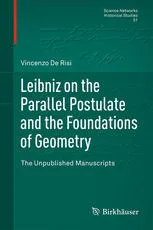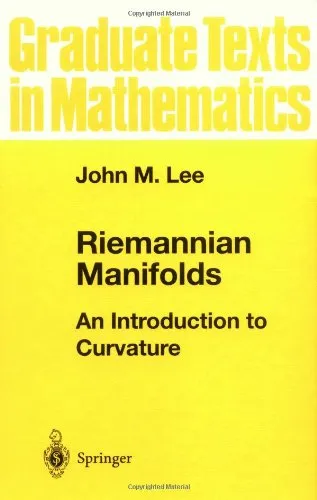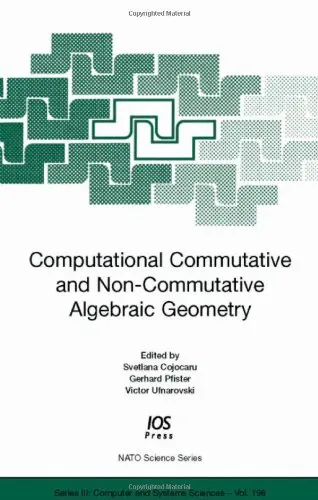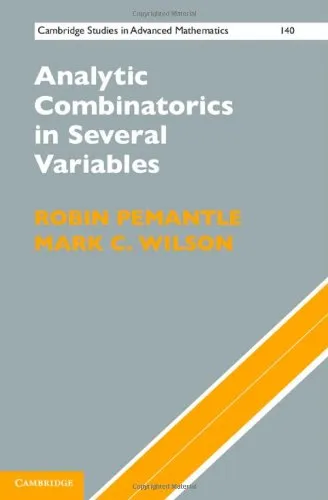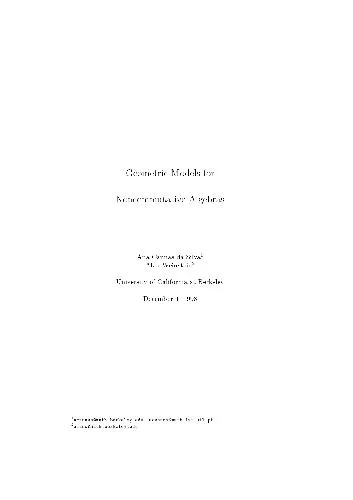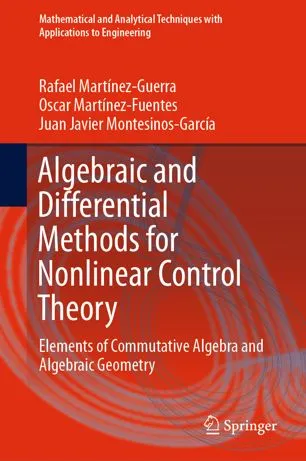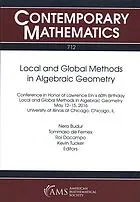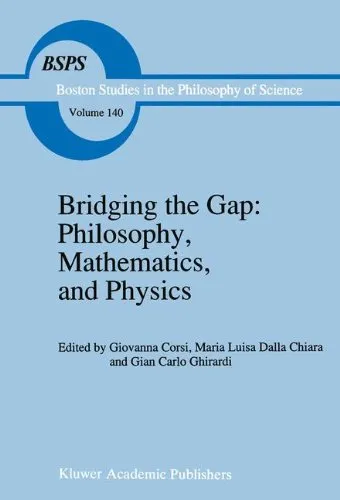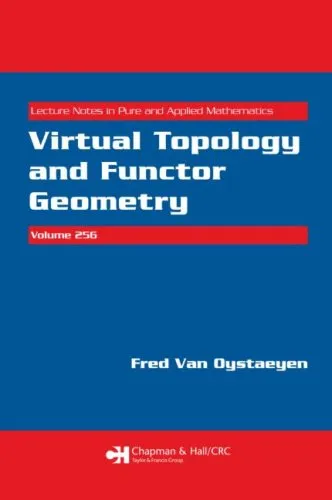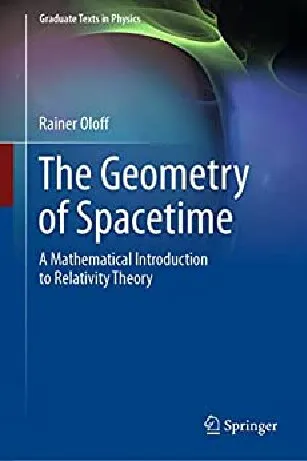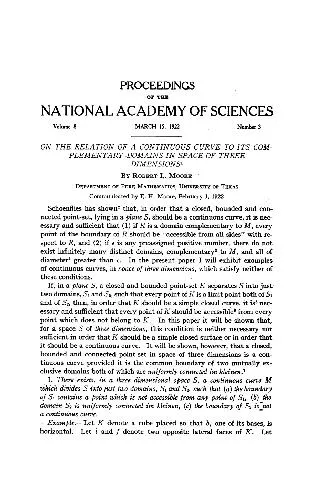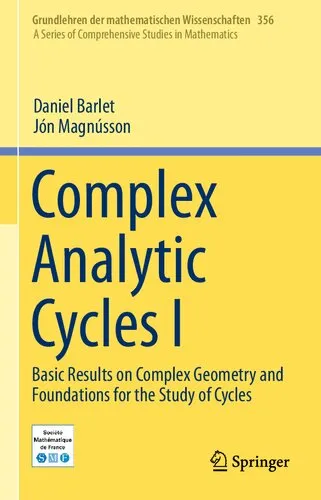Leibniz on the Parallel Postulate and the Foundations of Geometry: The Unpublished Manuscripts
4.5
Reviews from our users

You Can Ask your questions from this book's AI after Login
Each download or ask from book AI costs 2 points. To earn more free points, please visit the Points Guide Page and complete some valuable actions.Related Refrences:
Leibniz's work in mathematics and philosophy has been widely celebrated, but his contributions to geometry have often remained in the shadow of his more prominent achievements. Leibniz on the Parallel Postulate and the Foundations of Geometry: The Unpublished Manuscripts sheds new light on the great philosopher’s engagement with the foundational questions in geometry, specifically his exploration of the contentious parallel postulate. This book takes the reader on an intellectual journey through unpublished manuscripts, bringing to life the profound ideas and challenges that shaped Leibniz's efforts in this field.
Detailed Summary of the Book
In this comprehensive examination, the book delves into Leibniz’s unpublished writings, exploring how he grappled with the logical structure of geometry and the problem of the parallel postulate. For centuries, the parallel postulate—one of the foundational axioms of Euclid's geometry—posed a significant challenge to mathematicians and philosophers alike. Leibniz, known for his systematic and rigorous approach, engaged deeply with this issue, attempting to either derive the postulate from other axioms or to reconceptualize the logical framework of geometry entirely.
The book outlines Leibniz's critique of Euclidean geometry as well as his broader philosophical aim to unify geometrical reasoning under the umbrella of metaphysics and logic. Through careful analysis of his unpublished manuscripts, we gain insight into his approach to the axioms of geometry as contingent truths rather than necessary ones, revealing a radical vision of the subject that in some ways anticipates modern geometrical thinking.
Moreover, the book reveals Leibniz's dialogue with other intellectual figures of his era and how he positioned his ideas within the broader scientific and philosophical debates of the time. By piecing together his thoughts on infinite constructs, the nature of space, and the use of logic in geometry, this book provides a rich and detailed account of one of the least explored yet critical aspects of his oeuvre.
Key Takeaways
- Leibniz’s unpublished manuscripts demonstrate his dissatisfaction with the rigid framework of Euclidean geometry and his visionary approach to rethinking its axioms.
- The philosopher not only critiqued the parallel postulate but also explored ways to foundationally reform geometry as a science grounded in both logic and metaphysics.
- This book highlights Leibniz's anticipation of non-Euclidean geometries and his contributions to the conceptual tools that would later influence mathematical development in the 19th and 20th centuries.
- By examining Leibniz's thought process, we can see how historical debates over geometry continue to shape contemporary philosophical and mathematical discourse.
Famous Quotes from the Book
"Geometry is not merely a set of definitions and postulates, but a reflection of the fundamental order of the universe as manifest in space." – G.W. Leibniz
"The parallel postulate is not a necessary truth, for the proposition does not follow from the very nature of space but depends upon the peculiarities of our perceptions." – G.W. Leibniz
"To understand geometry's principles is to uncover the metaphysical truths that bind reality, reason, and imagination." – G.W. Leibniz
Why This Book Matters
Leibniz's reflections on geometry form an essential part of his philosophy and showcase the depth of his intellectual curiosity. While his contributions to calculus and metaphysics have been widely acknowledged, this book highlights a lesser-known but equally significant aspect of his legacy. By analyzing his unpublished manuscripts, Leibniz on the Parallel Postulate and the Foundations of Geometry not only fills a gap in Leibnizian studies but also prompts reevaluation of how foundational debates in geometry influenced the trajectory of modern mathematics.
Furthermore, this book provides a unique opportunity for mathematicians, philosophers, and historians to explore an intersection of disciplines—spanning geometry, logic, and metaphysics—that continues to fuel discussions in contemporary academia. It underscores Leibniz as not merely a mathematician or philosopher but as a thinker who constantly sought unity and coherence across all fields of human knowledge.
In engaging with the profound challenges posed by the parallel postulate, Leibniz’s manuscripts offer a timeless exploration of the nature of mathematical truths, the limits of reason, and the beauty of intellectual inquiry itself.
Free Direct Download
You Can Download this book after Login
Accessing books through legal platforms and public libraries not only supports the rights of authors and publishers but also contributes to the sustainability of reading culture. Before downloading, please take a moment to consider these options.
Find this book on other platforms:
WorldCat helps you find books in libraries worldwide.
See ratings, reviews, and discussions on Goodreads.
Find and buy rare or used books on AbeBooks.
1339
بازدید4.5
امتیاز0
نظر98%
رضایتReviews:
4.5
Based on 0 users review
Questions & Answers
Ask questions about this book or help others by answering
No questions yet. Be the first to ask!
